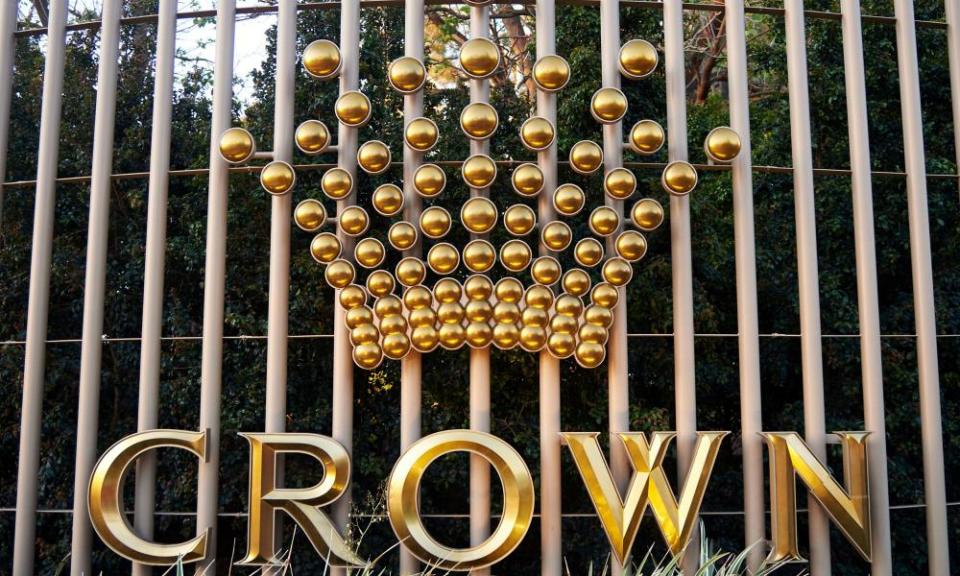James Packer and Crown save directors from shareholder revolt over NSW inquiry

Minor shareholders have delivered a stinging rebuke to the Crown Resorts board, voting strongly against the re-election of three directors and delivering a “first strike” against the remuneration report, after what one shareholder described as “shocking revelations” in the NSW probity inquiry.
But the Crown board will remain largely unchanged, after billionaire James Packer used his 36% shareholding to save the directors.
The allegations before the NSW Independent Liquor and Gaming Authority have included that Crown turned a blind eye to money laundering in its casinos; operated bank accounts outside its anti-money-laundering regime, prompting two major banks to close these accounts over money-laundering concerns; and that it had business partnerships with junket operators with links to organised crime.
Only one director has offered some accountability by way of resignation.
Related: Crown Resorts terminates agreements with James Packer's company on eve of AGM
The vice-chairman, John Horvath – one of the trio up for re-election – said that he would retire if the final vote of the minorities was against him, as angry shareholders peppered the chairwoman, Helen Coonan, with criticisms about the company’s culture and its response to allegations in the inquiry. He received a 34% vote against him.
Another director, Jane Halton, a former senior public servant who received a 25% vote against her, said she had considered resigning, but believed she had sufficient support from minority shareholders to continue. The final vote is still to be counted.
The other director, Guy Jalland, a representative of Packer’s private company Consolidated Press Holdings (CPH) who received a 41% vote against him, is staying too.
Coonan “unreservedly apologised” for the failures of governance and risk management in Australia’s largest casino company, Crown Resorts.
“In all of its history, Crown has never faced adversity like we are now – but I’d like to reassure all our investors, stakeholders and staff that the board is determined and willing to learn from the past,” Coonan told shareholders who attended the AGM via a virtual meeting.
“The board accepts that there needs to be an injection of new perspectives and expertise on our board. These changes need to be undertaken in a considered and thoughtful manner to ensure an orderly transition,” she said.
She promised more independent directors with appropriate skills but did not set a timetable for renewal.
She refused to answer any questions about what Crown may do if its licence was revoked in New South Wales.
At the executive level there have been few changes either.
Only two key Crown Resorts executives who played central roles in the running of the casino empire during the period now under scrutiny by the NSW inquiry have fallen on their swords. And neither are leaving immediately.
Crown Resorts chief executive, Ken Barton, announced the chief executive of Crown’s Australian resorts, Barry Felstead – a longstanding employee who played a key role in the VIP gambling business – would depart after “a transition period”.
Felstead was blamed by a number of board members for keeping them in the dark about the existence of Crown’s China operations, which led to the arrest of 29 staff for breaching China’s anti-gambling laws.
John Alexander, a CPH executive who served as executive vice-chair and executive chair of Crown after Packer resigned from the board due to ill health in 2016, had already indicated his intention to retire from the board.
He stepped down as chair in January 2020, when the inquiry was announced but remains on contract as an executive until January next year. He will receive a $3.5m payment, which Coonan described as a payment for his contractual obligations.
The key CPH director, Michael Johnston, who admitted at the inquiry he knew about Crown’s China operations and the mounting risks of possible action by Chinese authorities, said he believed “it is appropriate for me to stay on the board”.
Crown has also announced it was ending the agreements with CPH and Packer that gave them extraordinary access to executives and information within Crown.
CPH had had a services agreement which ensured CPH executives were paid for roles within Crown. There was also a major shareholder protocol, which the inquiry heard was used to provide almost daily updates to Packer.
Coonan said CPH remained a significant shareholder, and said that this relationship “needs to be appropriately managed”.
The company has also set up a separate compliance unit within the company that does not report to any business unit and has promised that, if it begins dealing with junket operators again in the future, it will consult with state regulators beforehand. It also plans to increase its due diligence of these companies, which bring high rollers to the casinos and often provide credit.
Related: Crown chairman Helen Coonan admits casino 'facilitated' money laundering
One shareholder asked whether, in the light of revelations, Crown was really “serious” about tackling money laundering.
“I totally reject the premise in your question that we are not getting serious about money laundering.” Coonan foreshadowed more changes in the future.
Barton apologised to shareholders for the misleading answer he gave at last year’s AGM about the information being provided to Packer. A tape of the question and his answer has been played numerous times at the NSW inquiry.
A “first strike” against its remuneration report – a vote of 25% or more – is important as it triggers a process under the Corporations Act that could lead to the re-election of the entire board, should a “second strike” be delivered by shareholders at the AGM next year.

 Yahoo Finance
Yahoo Finance 